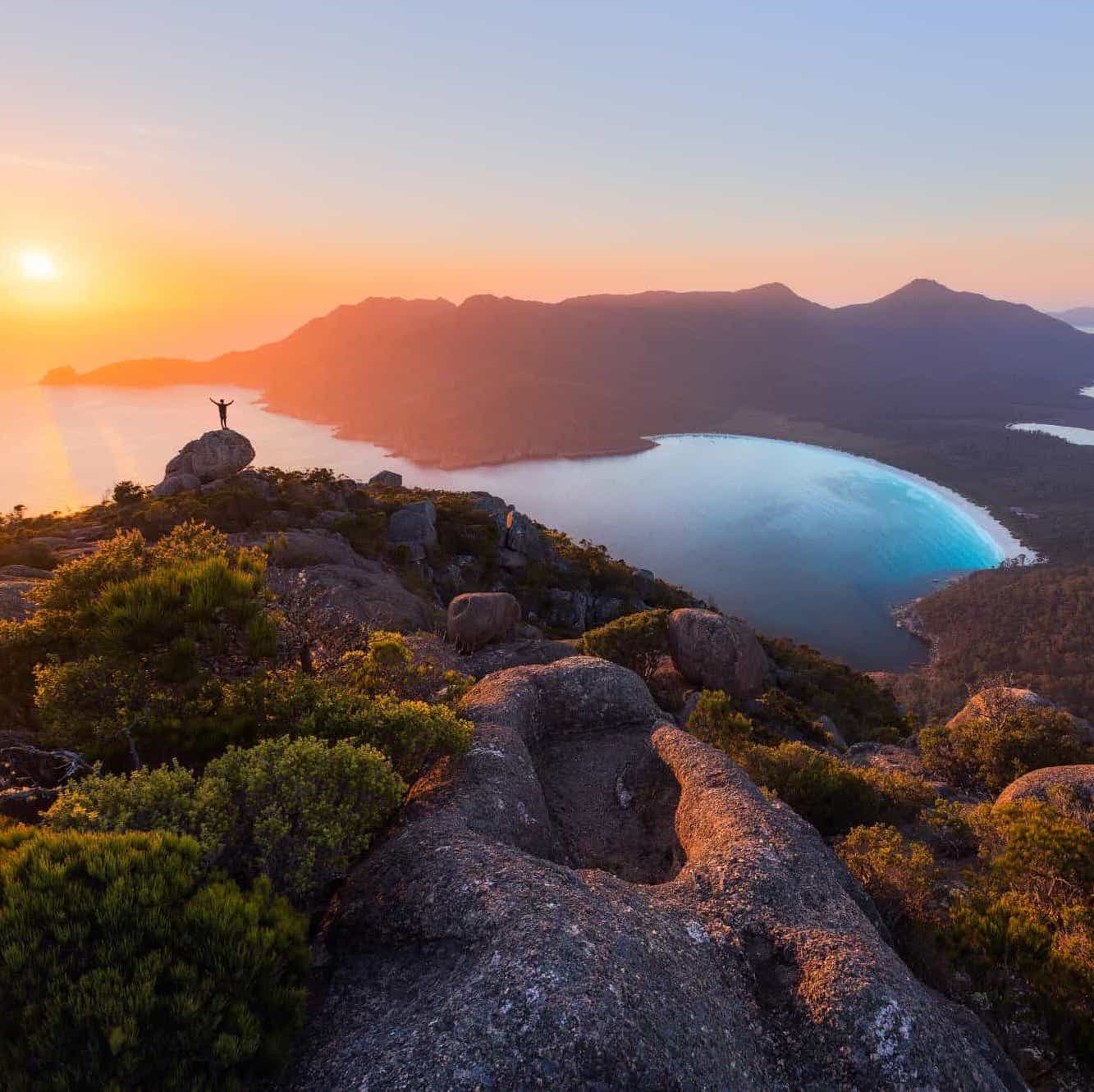Climate change and rising sea temperatures are pushing Australian coastal marine species south, in search of cooler waters and more suitable habitat. But Tasmania’s east coast is pretty much the stop of last resort for many vulnerable species. To those gazing out over the dazzling Wineglass Bay, the changes occurring below the surface may be invisible, but their effects are already altering our ecosystems and ways of life.
Talk by Professor Gretta Pecl with music by Michael Fortescue.
Suggested walking location
Wineglass Bay Walk, Freycinet National Park
This walk allows you to dip your toes into the turquoise waters and wander the sparkling white sands of Wineglass Bay Beach. Take the track to the Wineglass Bay Lookout for one of Tasmania’s most celebrated views. Once you’re at the saddle, take the approximately 1000 stairs down to Wineglass Bay Beach. An additional 20-minute stroll along the sand to the southern end of the beach will give you magnificent views back towards the Hazards. Grade 3: Some bushwalking experience recommended. Tracks may have short steep hill sections, a rough surface and many steps. Click here for more information.

Photo credit: Kristina D.C Hoeppner
Meet the presenter

Professor Gretta Pecl
Gretta is a marine ecologist with a passion for science engagement and communication with the public. Much of her current research is about understanding climate change impacts in marine systems, and how our marine industries and communities may best adapt to these changes. She developed and leads the National citizen science project Redmap Australia, which invites fishers and divers around our coastline to help monitor changes in our seas. Gretta is also a Lead Author for the IPCC (Inter-Governmental Panel on Climate Change), Director of the Centre for Marine Socioecology at UTAS, and a mum of two teenagers.
Meet the musician

Michael Fortescue
His early musical training was in Canberra, playing with Canberra Youth Orchestra, Canberra Symphony Orchestra, and Australian Youth Orchestra. After a year with Melbourne Chamber Orchestra, he moved to Tasmania to study with Jan Sedivka at UTAS. He commenced work with TSO in 1976. He undertook studies in 1988-89 with Francois Rabbath at Conservatoire Lili et Nadia Boulanger Paris IX. He left TSO in 2013.He is former board member of TSO, deputy chair Music Fund of Australia Council, chair of Music Panel of TAAB, president of Hobart branch of Musicians Union and lecturer in double bass and improvised music at UTAS. Currently chair of Kickstart Arts and freelance specialist in whiskers and kicks.
This episode was sponsored by Centre for Marine Socioecology, a collaboration between University of Tasmania and the CSIRO. Find them at marinesocioecology.org.
Feature Image Credit: Daniel Tran

ABOUT SCI ART WALKS
Sci Art Walks is a project by Beaker Street Festival, an annual celebration of science and art in Hobart, Tasmania. The unusual circumstances of 2020 inspired us to innovate, and create something that would get people away from their screens and out into nature. You might say Sci Art Walks is a project for a pandemic. In times of uncertainty and anxiety, many of us find solace in our natural world. Creating these episodes was also a great opportunity to continue to facilitate collaborations between scientists and artists, and showcase some of the amazing talent and groundbreaking scientific research coming out of Tasmania.
CREATED BY MARGO ADLER, CHRIS TOWNEND, AND ROSIE PIDD
9 EPISODES








